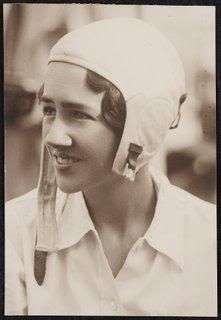Over lunch recently, a friend and I discussed why we don’t feel happier than we do. While we have the normal, everyday stresses most people have, we’re currently not coping with any major problems or crises. We figure our baseline level of happiness should be higher than it is. We weren’t complaining about it—just wondering why it was so. We felt like we should feel happier.
As I thought about this on my way home, I realized one reason could be that even though we don’t have any crises to deal with, we don’t have any major good things happening either. At this moment, our lives are filled with lots of work, a few annoyances and irritations, and not a lot of reward.
Reward. Perhaps that’s part of the key. We’re bulldozing through our tasks, not taking time to first notice and then reward our accomplishments and contributions. All work and no play make Jill an unhappy girl.
Most of us expect to bear a certain amount of responsibility and strive for achievement—after all, we’re grown ups, and grown ups take care of themselves and help others. However, when we don’t take time to notice and reward ourselves for what we accomplish, we risk burning out. If we wait for others to notice and reward, we’ll be waiting a long time. When was the last time someone complimented you for turning in a report on time, or even noticed that you mopped the kitchen floor? Just because something is expected of you doesn’t mean that it’s not worth rewarding. Most people I know tend to be pretty strict with themselves—work first (paid and non-paid), play/reward rarely…if ever.
I say it’s time to take rewards into our own hands, and to start doling them out liberally—to ourselves. Here are some basic principles to consider when thinking about rewards:
- If you finish your allotted day’s work early, don’t pile on more in an effort to “get ahead.” I’ve made this mistake. Reward yourself by doing something fun instead.
- Work in small treats throughout the day instead of saving them up for the evening when you might be too tired to enjoy them.
- Make sure the scale of the reward fits the accomplishment, but don’t limit your rewards to small things. Big accomplishments—or a series of small accomplishments—deserve big rewards.
- Choose a reward when you’re setting your goal. Knowing you have your reward to look forward to can help you get through some less-than-happy to-dos.
- Keep a file or list of rewards—tear out catalog pages or bookmark websites with items you’d love to have, for example. Make a list of things you enjoy doing (see below for some suggestions) that could be used as rewards.
- Keep a running list of your accomplishments, completed tasks and contributions to others. It’s easy to forget what you’ve done, and just as easy to focus on what you’ve left undone.
- Start a reward fund: put a small amount of money in your fund every time you accomplish something, and use the money for future rewards.
- Choose rewards that you love and that will motivate you, not what someone else might enjoy—or that you think you should enjoy.
- Music. Listen to your favorites, or spend time exploring downloadable music and try something new.
- Reading for fun—not for work or self-improvement. I’ve got a cup of tea and book waiting for me when I finish this blog post.
- Spa services like massage, manicures or pedicures.
- Fresh flowers.
- Eating at your favorite restaurant, or buying take-out so you don’t have to cook.
- Jewelry. It doesn’t have to be expensive—Etsy.com has a multitude of cute pieces for less than $50. You could also buy a charm for a bracelet or necklace to commemorate your achievement.
- Adding to a collection.
- Allowing yourself a small food treat—a piece of good quality chocolate or a rich cup of coffee, for example. I know this goes against much of the advice given for weight control, but the emphasis here is on small. Buy the best quality you can afford.
- Time off—whether it’s an hour, a day or even a weekend. Take time to do exactly as you please. Or do nothing at all.
- Nap.
- Matinees—watch a movie, either at a theater or at home, in the middle of the day. I don’t know why, but this feels so decadent!
- Attending your favorite sporting event.
- Playing with your dog.
- Practicing a hobby—whether it’s baking, painting, quilting, photography, or what have you. You may already take time to do your hobby, but if you think of it as a reward, you’ll assure yourself some guilt-free time to spend on it.
- Weekend getaways, with a spouse or by yourself.










.jpg)


